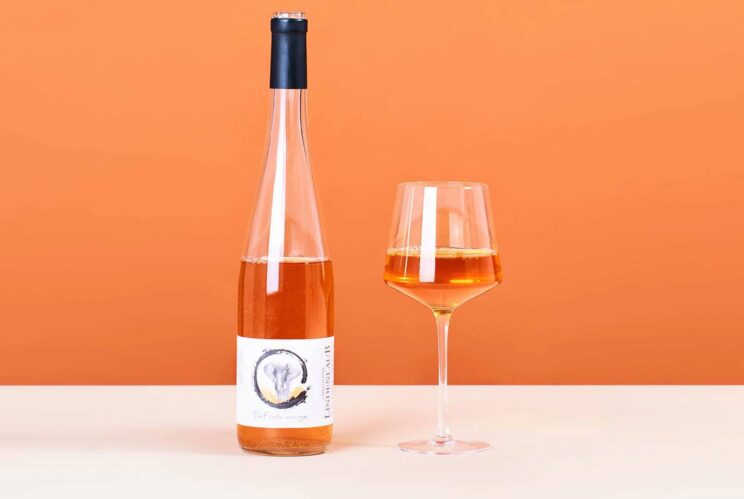The Rise of Orange Wine: How an Ancient, Skin-Contact Wine Became Summer’s Hottest Sip
For years, rosé reigned supreme as the go-to summer sip. But this season, orange wine—a buzzy, skin-contact white wine known for its gorgeous amber hue and complex, slightly funky flavor—is taking over glasses everywhere. We caught up with Night Inn sommelier Mark Ignaczak (Polo Bar/Carbone) to get the scoop on orange wine—what causes that orange color, why it works so well for summer, and how exactly to enjoy it.

Orange Wine 101
First, let’s get one misconception straight—orange wine actually has nothing to do with oranges! “Orange wine is made from white grapes that are fermented with their skins, giving it that amber hue and tannic structure,” Ignaczak explains. In fact, some winemakers refuse to put “orange wine” on labels since they fear it might confuse people. When searching for orange wines or ordering one in a restaurant, you may have to look for keywords like “skin contact,” “amber wine,” “macerated wine,” or “skin-fermented white wine.”
Secondly, orange wine might be trending, but it’s not a new type of wine by any means. “It’s an ancient style from the country of Georgia that actually predates most modern winemaking,” Ignaczak tells us. “Winemakers there fermented white grapes—skins, seeds, and all—in large clay vessels called qvevri buried underground. This ancient technique created deeply textured, amber-colored wines long before modern winemaking began.”
Why Orange Wine Works for Warm Weather
Whites and rosés are typical summer wine options, so what makes orange wine stand out this season? “Its refreshing acidity, subtle grip, and savory notes make it ideal for sipping on a sunny patio,” Ignaczak says.
What’s more—the shades (and flavors!) of orange wines range from deep oranges to almost-see-through, depending on how long the wine sat with its grape skins. “It’s versatile, chilled, and, let’s be real, just looks cool in a glass for the summer,” Ignaczak explains. “It can also be adventurous with a lot of natural winemaking techniques being used by orange wine makers, giving them more complex flavors than most rosés.”
Orange Wine vs. Rosé
Orange wine may be heralded as the new rosé, but there are some pretty stark differences between the two types of wines. Orange wines often have more tannins than their lighter summer counterparts, making them more structured—closer to dry reds.
“Whereas rosé wine is made by introducing some very brief skin contact of red grapes (you often hear things like ‘rosé of pinot noir’), orange is totally different,” Ignaczak says. “Orange wines are made using extended skin contact from white grapes, which creates a lot more complexity. Ever had a tea where you’ve left the bag in all day? Different from a quick steep. From a taste perspective, rosé is light, fruity, and crisp—think strawberries and breezy afternoons. Orange wine is more textured, earthy, and herbal, offering a deeper, more complex experience with a wilder edge.”
What to Pair With Orange Wine
A taste profile similar to drier reds completely alters what complements orange wines best—and goes beyond the usual light summer bites. “Because of the long skin contact, and also often natural winemaking techniques, orange wine can be super complex, and can stand up to richer food better than a lot of white wines,” Ignaczak explains. “Pairings depend on the grape, but it’s almost always great with grilled seafood, spiced Middle Eastern dishes, or anything rich in umami—for a full dish, try it with charred octopus, hummus spreads, and za’atar-roasted vegetables.”
How to Try Orange Wine at Home
As for what orange wines to try, Ignaczak’s recommendations range from an international callout to the wine’s Georgian origins to iterations in Italy and California. “Look for labels like Radikon (Italy), Donkey & Goat (California), or Pheasant’s Tears (Georgia),” Ignaczak suggests. “These bottles are both great-looking on your shelf, and also striking on the palate—you’ll find these at plenty of local wine shops in NYC, and some online retailers.”
The Related Life is written and produced by the Related Life Editorial Team. Be sure to follow us on Facebook and Instagram for the latest events, news, and announcements in your area, and tag us for a chance to be featured @therelatedlife and #therelatedlife.